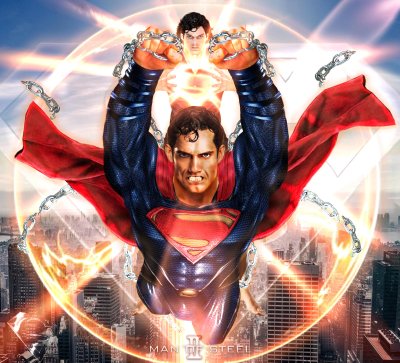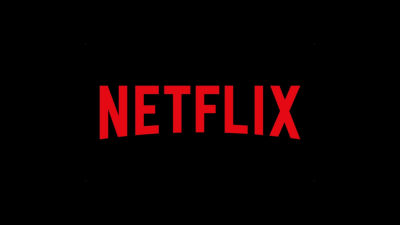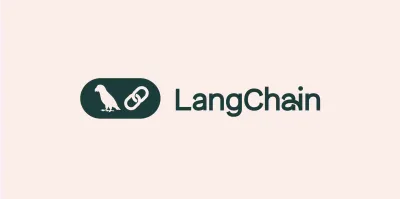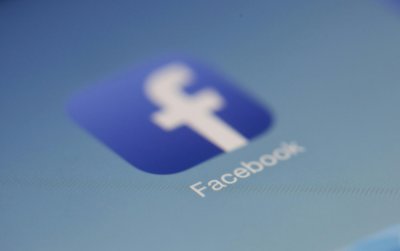Warner Bros. Discovery Takes on Midjourney in Landmark Copyright Battle Over AI-Generated Images
By: @devadigax

Warner Bros. Discovery (WBD) has filed a lawsuit against AI art generator Midjourney, escalating the ongoing debate surrounding copyright and the use of intellectual property in the rapidly evolving field of artificial intelligence. The lawsuit, first reported by The Hollywood Reporter, alleges that Midjourney has “brazenly dispensed” WBD’s intellectual property, specifically its iconic characters, as if it were Midjourney’s own. This legal action marks a significant step in the broader fight over the ownership and usage rights of data used to train AI models and the resulting outputs.
The complaint centers on the claim that Midjourney’s AI image generation platform has produced “countless” unauthorized copies of Warner Bros. Discovery’s characters. While the exact number and specific characters remain undisclosed in publicly available information, the lawsuit implies a widespread infringement impacting numerous properties under the WBD umbrella, which includes franchises like DC Comics, Harry Potter, and Looney Tunes. The implication is that users have prompted the Midjourney AI with character names or descriptions, resulting in the generation of images that closely resemble, if not directly copy, the copyrighted characters.
This lawsuit highlights a critical legal grey area: the ownership of images generated by AI models trained on vast datasets containing copyrighted material. While the AI itself doesn't hold copyright, the question of whether the generated images infringe on existing copyrights is complex. The training data for these models often includes copyrighted works scraped from the internet without explicit permission. This raises concerns about whether the resulting outputs are derivative works, therefore protected only by the copyright holder of the original material.
WBD’s legal strategy seems to be targeting Midjourney directly, arguing that the platform facilitates the creation of infringing images, thus contributing to the copyright violation. This differs from other cases focusing solely on the users generating the images. Targeting the platform itself suggests a more aggressive approach, aiming to establish legal precedent regarding the responsibility of AI companies for the outputs of their technology. The success of this strategy will depend largely on the court's interpretation of "substantial similarity" between the generated images and the original copyrighted characters, a legal standard often used in copyright infringement cases.
The lawsuit carries significant implications for the AI art generation industry as a whole. A ruling in favor of WBD could set a precedent impacting numerous AI platforms that utilize similar training methodologies. It could lead to tighter restrictions on the use of copyrighted material in training datasets, potentially requiring explicit licensing agreements from copyright holders. This would significantly increase the cost and complexity of developing and deploying AI image generators, potentially hindering innovation in the field.
Conversely, a ruling in favor of Midjourney could embolden other AI companies, suggesting a broader acceptance of the current practices. However, this outcome might further fuel the ongoing debate surrounding the ethical implications of AI art generation and the need for clearer legal frameworks. The case could also lead to a reevaluation of “fair use” doctrines, which could allow limited use of copyrighted material for transformative purposes. The argument here might hinge on whether the AI-generated images are transformative enough to constitute fair use, a nuanced and often contested aspect of copyright law.
The implications extend beyond just the entertainment industry. The outcome of this lawsuit will have ramifications for other sectors utilizing AI image generation, such as fashion, advertising, and game development. The use of AI in creative fields is rapidly expanding, making the legal clarity surrounding copyright infringement in AI-generated content crucial for the sustainable growth of this technology. The Warner Bros. Discovery vs. Midjourney case is poised to become a landmark legal battle shaping the future of AI and copyright law for years to come. The legal community will be watching closely to see how the court interprets the complex intersection of AI technology and intellectual property rights.
The complaint centers on the claim that Midjourney’s AI image generation platform has produced “countless” unauthorized copies of Warner Bros. Discovery’s characters. While the exact number and specific characters remain undisclosed in publicly available information, the lawsuit implies a widespread infringement impacting numerous properties under the WBD umbrella, which includes franchises like DC Comics, Harry Potter, and Looney Tunes. The implication is that users have prompted the Midjourney AI with character names or descriptions, resulting in the generation of images that closely resemble, if not directly copy, the copyrighted characters.
This lawsuit highlights a critical legal grey area: the ownership of images generated by AI models trained on vast datasets containing copyrighted material. While the AI itself doesn't hold copyright, the question of whether the generated images infringe on existing copyrights is complex. The training data for these models often includes copyrighted works scraped from the internet without explicit permission. This raises concerns about whether the resulting outputs are derivative works, therefore protected only by the copyright holder of the original material.
WBD’s legal strategy seems to be targeting Midjourney directly, arguing that the platform facilitates the creation of infringing images, thus contributing to the copyright violation. This differs from other cases focusing solely on the users generating the images. Targeting the platform itself suggests a more aggressive approach, aiming to establish legal precedent regarding the responsibility of AI companies for the outputs of their technology. The success of this strategy will depend largely on the court's interpretation of "substantial similarity" between the generated images and the original copyrighted characters, a legal standard often used in copyright infringement cases.
The lawsuit carries significant implications for the AI art generation industry as a whole. A ruling in favor of WBD could set a precedent impacting numerous AI platforms that utilize similar training methodologies. It could lead to tighter restrictions on the use of copyrighted material in training datasets, potentially requiring explicit licensing agreements from copyright holders. This would significantly increase the cost and complexity of developing and deploying AI image generators, potentially hindering innovation in the field.
Conversely, a ruling in favor of Midjourney could embolden other AI companies, suggesting a broader acceptance of the current practices. However, this outcome might further fuel the ongoing debate surrounding the ethical implications of AI art generation and the need for clearer legal frameworks. The case could also lead to a reevaluation of “fair use” doctrines, which could allow limited use of copyrighted material for transformative purposes. The argument here might hinge on whether the AI-generated images are transformative enough to constitute fair use, a nuanced and often contested aspect of copyright law.
The implications extend beyond just the entertainment industry. The outcome of this lawsuit will have ramifications for other sectors utilizing AI image generation, such as fashion, advertising, and game development. The use of AI in creative fields is rapidly expanding, making the legal clarity surrounding copyright infringement in AI-generated content crucial for the sustainable growth of this technology. The Warner Bros. Discovery vs. Midjourney case is poised to become a landmark legal battle shaping the future of AI and copyright law for years to come. The legal community will be watching closely to see how the court interprets the complex intersection of AI technology and intellectual property rights.
Comments
Related News

OpenAI Unveils ChatGPT Atlas: Your Browser Just Became Your Smartest AI Assistant
In a move poised to fundamentally reshape how we interact with the internet, OpenAI has officially launched ChatGPT Atlas, a gr...
@devadigax | 22 Oct 2025
In a move poised to fundamentally reshape how we interact with the internet, OpenAI has officially launched ChatGPT Atlas, a gr...
@devadigax | 22 Oct 2025

Netflix Doubles Down on Generative AI, Challenging Hollywood's Divide Over Creative Futures
In a move that underscores a growing chasm within the entertainment industry, streaming giant Netflix is reportedly going "all ...
@devadigax | 21 Oct 2025
In a move that underscores a growing chasm within the entertainment industry, streaming giant Netflix is reportedly going "all ...
@devadigax | 21 Oct 2025

AI Agent Pioneer LangChain Achieves Unicorn Status with $1.25 Billion Valuation
LangChain, the innovative open-source framework at the forefront of building AI agents, has officially joined the exclusive clu...
@devadigax | 21 Oct 2025
LangChain, the innovative open-source framework at the forefront of building AI agents, has officially joined the exclusive clu...
@devadigax | 21 Oct 2025

Meta Boots ChatGPT From WhatsApp: A Strategic Play for AI Dominance and Walled Gardens
In a significant move that reshapes the landscape of AI chatbot accessibility, OpenAI has officially confirmed that its popular...
@devadigax | 21 Oct 2025
In a significant move that reshapes the landscape of AI chatbot accessibility, OpenAI has officially confirmed that its popular...
@devadigax | 21 Oct 2025

Meta's New AI Peeks Into Your Camera Roll: The 'Shareworthy' Feature Raises Privacy Eyebrows
Meta, the parent company of Facebook, has rolled out a new, somewhat controversial artificial intelligence feature to its users...
@devadigax | 18 Oct 2025
Meta, the parent company of Facebook, has rolled out a new, somewhat controversial artificial intelligence feature to its users...
@devadigax | 18 Oct 2025
 AI Tool Buzz
AI Tool Buzz